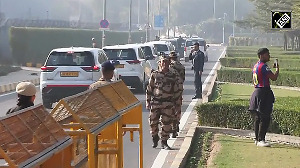Displaying anger at the Kabul embassy blast in which "elements" based in Pakistan were involved, New Delhi on Monday said the incident had vitiated the atmosphere putting the dialogue process "under stress" and asked Islamabad to address its concerns.
The Kabul attack, along with cross-border terrorism and ceasefire violation, were taken up by Foreign Secretary Shiv Shankar Menon with his Pakistani counterpart Salman Bashir during their talks in Delhi amid growing frustration in New Delhi that Islamabad is not doing enough to check these activities.
At the talks marking the launch of 5th round of Composite Dialogue, Menon said the dialogue was happening at a "difficult time of our relationship with Pakistan."
"Unfortunately, there have been several issues in the recent past, which have vitiated the atmosphere and the composite dialogue process is under stress," Menon said.
In this context, he referred to the Kabul attack, recent violations of the ceasefire along the Line of Control, cross-border terrorism and incitement to violence in Jammu and Kashmir.
He bluntly told Bashir that India was convinced that the July 7 attack on its embassy in Kabul was the handiwork of people based in Pakistan.
"Our investigations so far point towards a few elements in Pakistan to be behind the (Kabul) blast," he told Bashir.
"There have been public statements by some leaders in Pakistan, who are reverting to the old polemics," Menon said, adding all these things had culminated in the bombing at the embassy in Kabul which killed four Indians, including the defence attache and a senior IFS officer along with 54 others.





